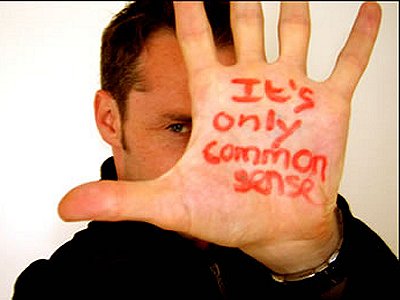
UNCOMMON SENSE
In applying common sense to the bigger issues of life we lull ourselves into a dangerous complacency; the gift of wisdom is offered by God to protect us from these lapses.
The prevalent and unassailable refrain: ‘it’s common sense, isn’t it?’ usually puts an end to conversation on any given topic. To dispute common sense is to invite a question about our mental health. Common sense is robust and refreshing, cutting through specious or lily-livered arguments, reaching to the heart of the matter in a way the silver-tongued obscure.
Evidence suggests, however, that sense is only common to the extent that two or more people share similar social experiences. Separate cultures frequently take markedly different views of what constitutes common sense in any one situation. As Duncan Watts, a research scientist at Yahoo! has observed in ‘Everything is Obvious’ (Atlantic Books, 2011): ‘Common sense is not so much a worldview as a grab bag of logically inconsistent, often contradictory beliefs, each of which seems right at the time but carries no guarantee of being right any other time’.
Common sense has a cherished place in most cultures, in part because it enables us to deal with immediate and tangible problems, ensuring we have the tools to deal with the specific obstacles life puts in our way. Risks emerge when we begin to apply the ill-defined principles of common sense to problems beyond the mundane and everyday and yet the recourse to ‘it’s common sense, isn’t it?’ is often still used to shut down debate on complex issues where we do not have a comprehensive grasp of the whole story.
The denser the question posed of us, the more dangerous the refuge of common sense becomes. In addressing awkward and dynamic issues of social policy, the appeal to common sense can be alarming, yet this is precisely what we see among politician and commentators as they apply their minds to questions of education, health, justice, immigration and so on. There is a particular risk in extrapolating from individual behaviour how we think a larger group will act because once people interact with one another, it produces so-called ‘emergent behaviour’ where outcomes cannot be predicted (at its most extreme, how a mob becomes more volatile and irrational than one person). This does not seem to stop classical economists predicting how entire economic systems will function based on the rational choices we expect an individual to make. Furthermore, in applying common sense to an issue, we place almost all the emphasis on what has already happened relative to what might have happened but didn’t.
This is where the plea of St. James for people to ask for the gift of wisdom from God is so pertinent. Common sense may be culturally hard-wired into our brains, but there are many times when we need power beyond the facility of our minds to deal with a problem which only the gift of wisdom can impart. This intuitive sense owes everything to the mysterious prescience of God, who sees all things and knows all things.
In James 3, wisdom is described as ‘pure, then peaceable, gentle, willing to yield, full of mercy and good fruits, without a trace of partiality or hypocrisy’ (verse 17). We tend to think of wisdom as an intangible and abstract property, whereas James sees its shape in the character we bear; in whom we are more than what we think. There is good sense in this: those who are stubborn and argumentative are less likely to obtain wisdom because by their behaviour they implicitly rule out finding it in other people; wisdom, like common sense, is a shared resource.
There is a strong case for saying that the collective problems the human race faces in the twenty-first century are of a magnitude and complexity entirely different to those faced by previous generations, fostered by our ingenuity in science and technology. As we pray for wisdom in leaders in the various fields of human society, we are bestowing in faith perhaps the most precious resource available to us in tackling our problems. The world has never been as fluid or harder to predict than it is today and it calls for an uncommon sense of understanding.
Common sense it most definitely isn’t.
POPULAR ARTICLES

Why Violence Is Declining In The West But There Is No Guarantee It Will ContinueTo
Europe's peace since 1945 could yet be seen as a brief interlude.

Obama's Covert Wars
The use of drones is going to change warfare out of all recognition in the next decades.

Through A Glass Starkly
Images of traumatic incidents caught on mobile phone can be put to remarkable effect.
They can also be filmed as a way of avoiding a personal response to the incident.

What Are British Values?
Is there a British identity and if so, what has shaped the values and institutions that form it?

